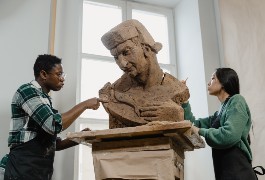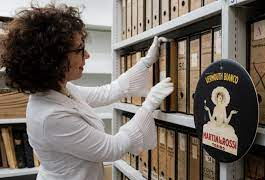Doctor of Philosophy in Conservation of Material Culture
UCLA
Los Angeles, CA
The Ph.D. program in the Conservation of Material Culture (CMC) is offered by the UCLA/Getty Interdepartmental Program in the Conservation of Cultural Heritage, housed under the Cotsen Institute of Archaeology and the Division of Social Sciences at UCLA. The CMC PhD is distinct from our practice-focused MA degree that trains professional conservators in the Conservation of Cultural Heritage. For those interested in the details of each program please see the Student Handbooks on our website.
The Ph.D. program is designed to train the next generation of multidisciplinary researchers and cross-cultural leaders in the theoretical and experimental developments and policies of cultural heritage conservation. Through rigorous research and multidisciplinary scholarship, students acquire the necessary knowledge and skills to become leaders in the field. They have the opportunity to build their academic training through a combination of interdisciplinary coursework, academic mentored research, teaching experience, and skilled guidance from academic advisors and mentors.
The program aims to provide:
- An integrated, comprehensive curriculum to foster the next generation of conservation leaders with strong research, theoretical, and applied qualitative and quantitative skills;
- Rigorous training in conservation theory, ethics, policy, and research;
- Substantive research training in a specific domain of application in conservation;
- Experiential learning and mentoring in communication, scientific writing skills, and the ability to work in multidisciplinary teams.
Participating members in the Ph.D. degree course include Program faculty and academic staff who are committed to teaching all the core courses and faculty from various divisions and schools across UCLA with expertise in different classes of materials such as archaeological, cultural and environmental materials (both organic and inorganic); their structure, properties, deterioration and conservation; materials characterization techniques; documentation and data processing, mining and visualization; environmental studies; museum and library science; geology/geoscience; archaeology/anthropology; art history; public policy; ethnography and indigenous studies.







